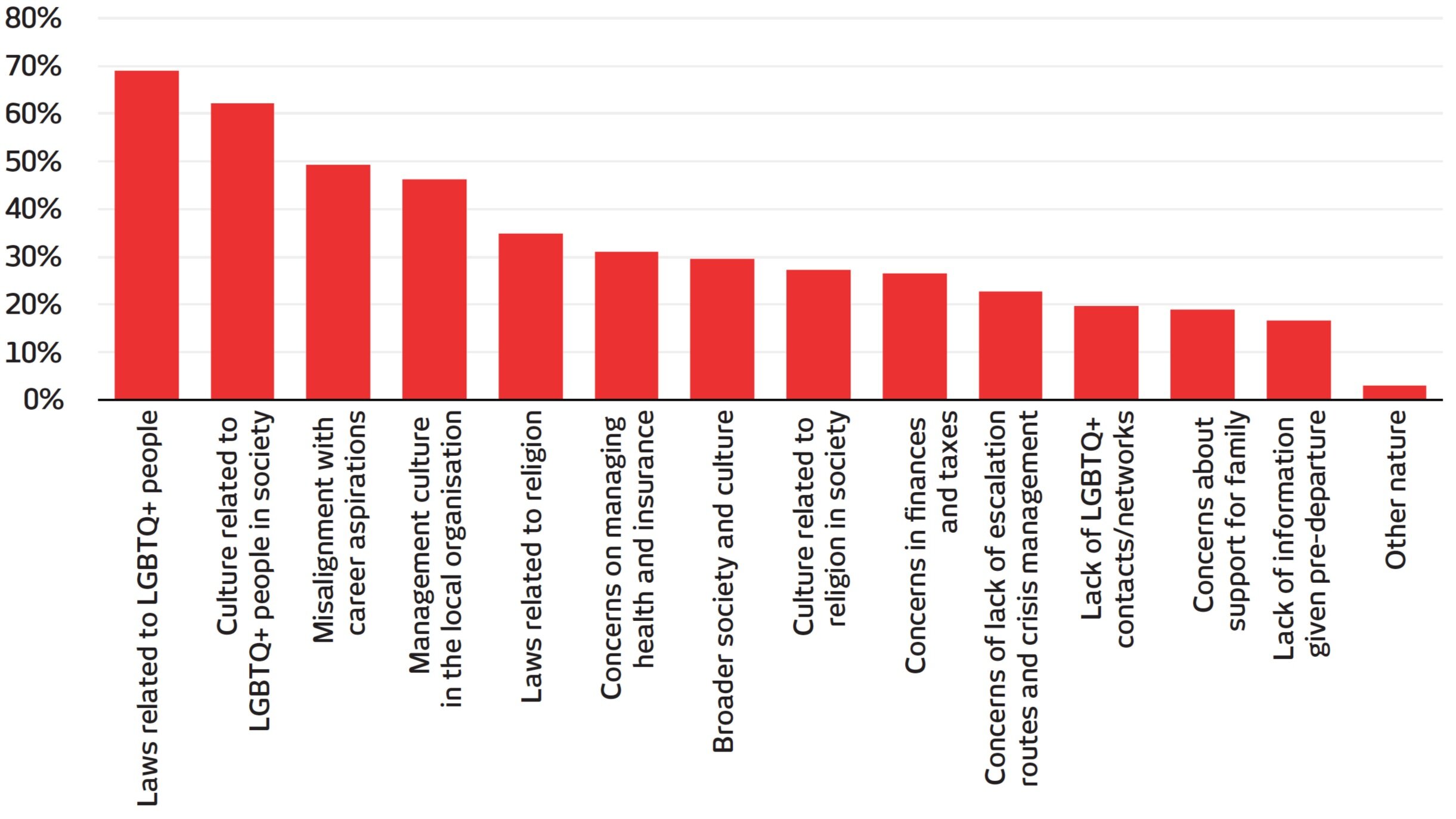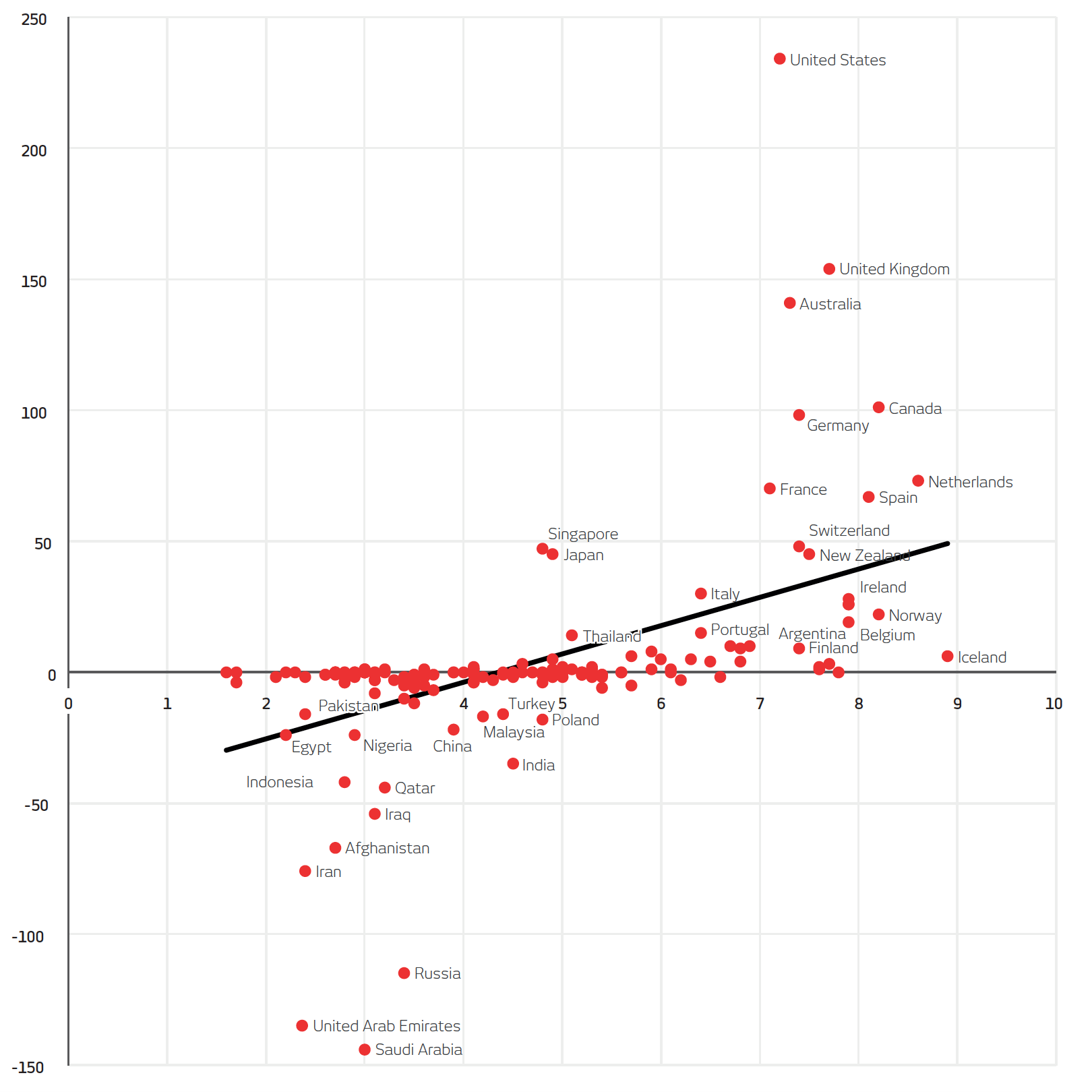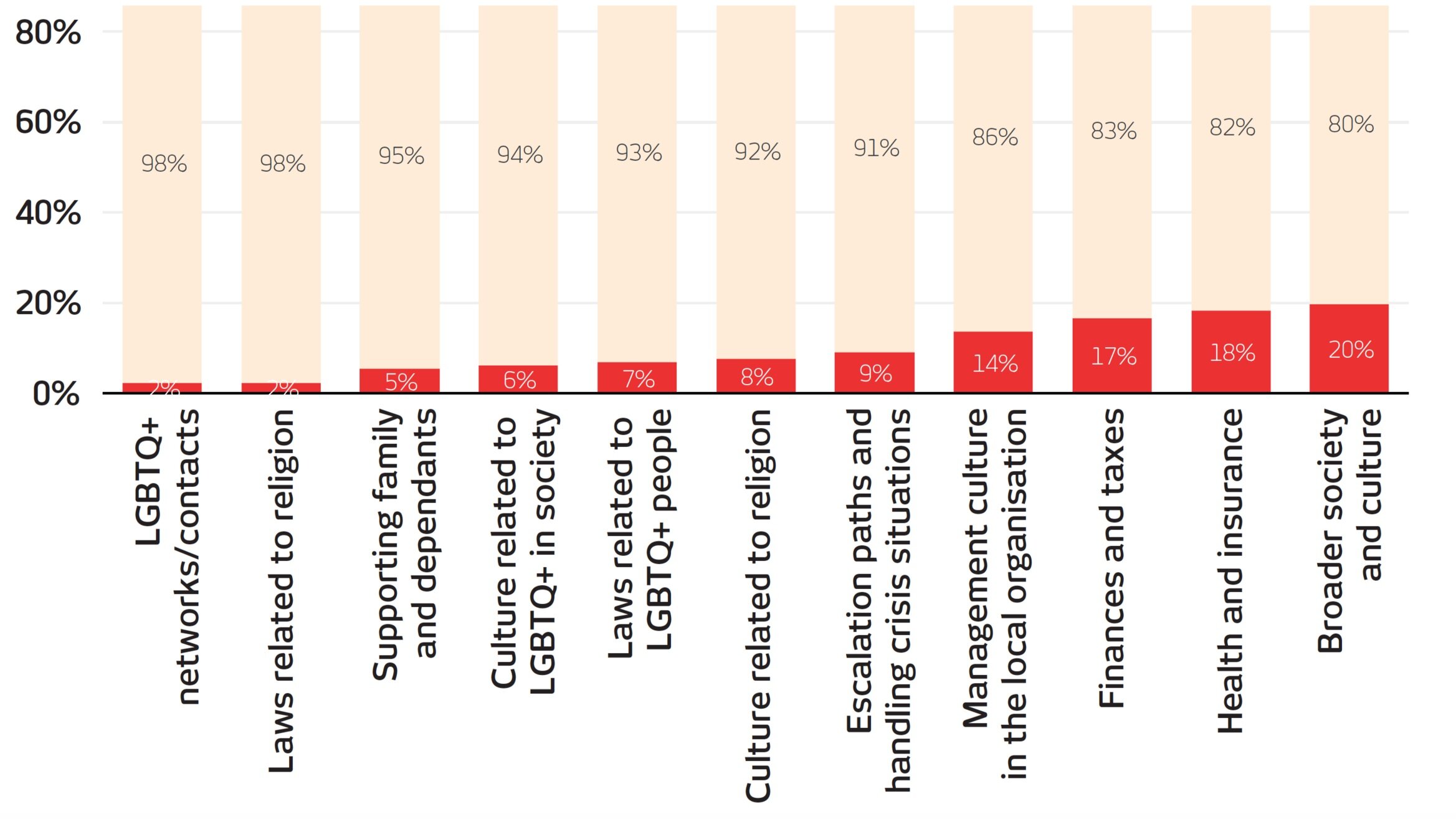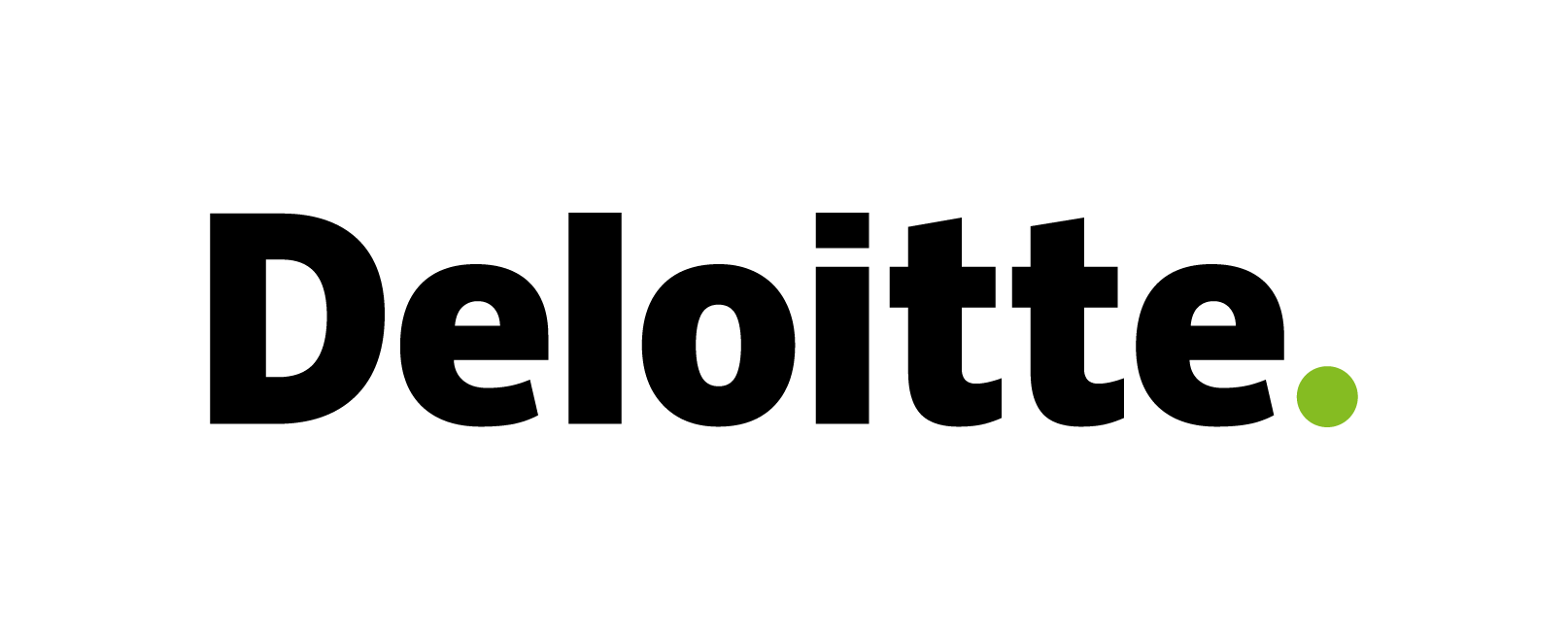Working Globally: Why LGBT+ Inclusion is
Key to Competitiveness
First-of-its-kind report studies the experiences of
LGBT+ people working abroad
This report looks at why LGBT+ inclusion is an important component of companies’ ability to operate globally today and in the future. The report is a collaboration between Open For Business, Deloitte and Herbert Smith Freehills. It uses data collected by Deloitte, in partnership with Herbert Smith Freehills, to greater understand the experiences of LGBT+ people when working globally, and concludes that LGBT+ inclusion can positively impact the competitiveness of global companies, and the countries in which they are based.
KEY FINDINGS
Making decisions about international assignments
LGBT+ laws and culture are the two most important factors influencing the decision of LGBT+ people (and people with LGBT+ dependants) to undertake international business travel and assignments – ahead even of healthcare and insurance.
Respondents who had been offered an international assignment were asked whether certain factors pertaining to the host country would make them reject an international assignment now or in the future; the following three factors came out top of the list:
1. Laws related to LGBT+ people (69% of respondents)
2. Culture related to LGBT+ people (62% of respondents)
3. Misalignment with career aspirations (49% of respondents).
Chart 4: Matters that would make respondents reject a new assignment
Assessing the desirability of different countries
Countries that have higher levels of social and legal LGBT+ acceptance are more likely to attract LGBT+ people working on international assignments and business trips. By comparison, countries that have lower levels of social and legal LGBT+ acceptance are less likely to attract LGBT+ people.
The relationship between the desirability of different countries and their level of human rights protections for LGBT+ people reveals a statistically significant positive relationship between the two variables. Specifically, a six-point increase in the F&M Global Barometers combined score leads to a 10% increase in the number of respondents who are willing to relocate to that country for a work assignment.
Chart 6: Human rights protections for LGBT+ people (x axis) vs. the net number of respondents (y axis)
Support from employers
While there is widespread willingness to travel, more than 90% of LGBT+ people who have worked on an international assignment did not receive information from their employer about LGBT+ laws, networks and culture before or after being offered the assignment.
The most frequently provided information concerned broader society and culture (20%), health and insurance (18%), finance and taxes (17%), and management culture in the local organisation (14%). The least frequently provided information concerned information about LGBT+ networks (2%), laws related to religion (2%), culture related to LGBT+ people (6%), laws related to LGBT+ people (7%) and culture related to religion (8%).
Chart 11: information provided before assignment began





